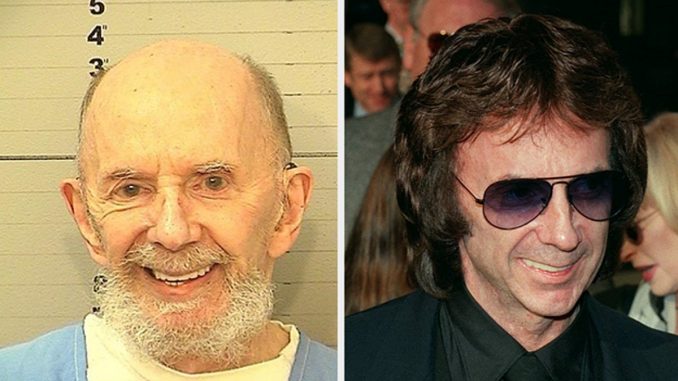
[ad_1]
Music producer Phil Spector has died at age 81 in a California prison.
Spector died Saturday at a hospital of natural causes, according to the California Department of Corrections and Rehabilitation. His official cause of death will be determined by a medical examiner.
He helped curate the mainstream playlist for decades, with more than 20 tracks that charted on the Billboard Top 40 between 1961 and 1966 — many using his signature “wall of sound.” He worked with the Beatles, Tina Turner, Leonard Cohen, girl groups like the Ronettes and the Crystals, and others.
He effectively retired after putting out his last full record with the Ramones in 1979. In 2003 he killed actor and model Lara Clarkson, who was found dead at his mansion outside Los Angeles after he shot her in the mouth. In 2009, he was sentenced to 19 years to life in prison for second-degree murder.
Spector maintained his innocence, saying Clarkson killed herself. He was quoted in Esquire as saying, “I didn’t do anything wrong. … She kissed the gun.”
The first time he went to court, in 2007, it was declared a mistrial. He frequently wore wigs to court. Evidence came forward that Spector had a pattern of pointing guns at women since the ’70s.
He was tried again in 2008. In 2009, six years after the killing, he was found guilty.
In 2014, his lawyer told the Daily Mirror that Spector was in poor health and had lost the ability to speak. He would have been up for parole in 2024.
Near the height of his career, in February 1965, Spector was interviewed by Time magazine. “You’ve Lost That Lovin’ Feelin’” — cowritten by Spector, Barry Mann, and Cynthia Weil and performed by the Righteous Brothers — had already spent several weeks at No. 1. At 3:46, it was the biggest record of his career, and way too long for radio play. Spector didn’t want to cut a second. He printed a “3:05” runtime on it to trick DJs. It would go on to have the most plays on the radio of any pop single in history from 1997 to 2019.
“We’re the only ones communicating with the teenagers,” he told Time magazine. “They are so prone to anxiety and destruction, and they can’t intellectualize their wounds. … Our music helps them to understand.”
[ad_2]
Source link



Leave a Reply